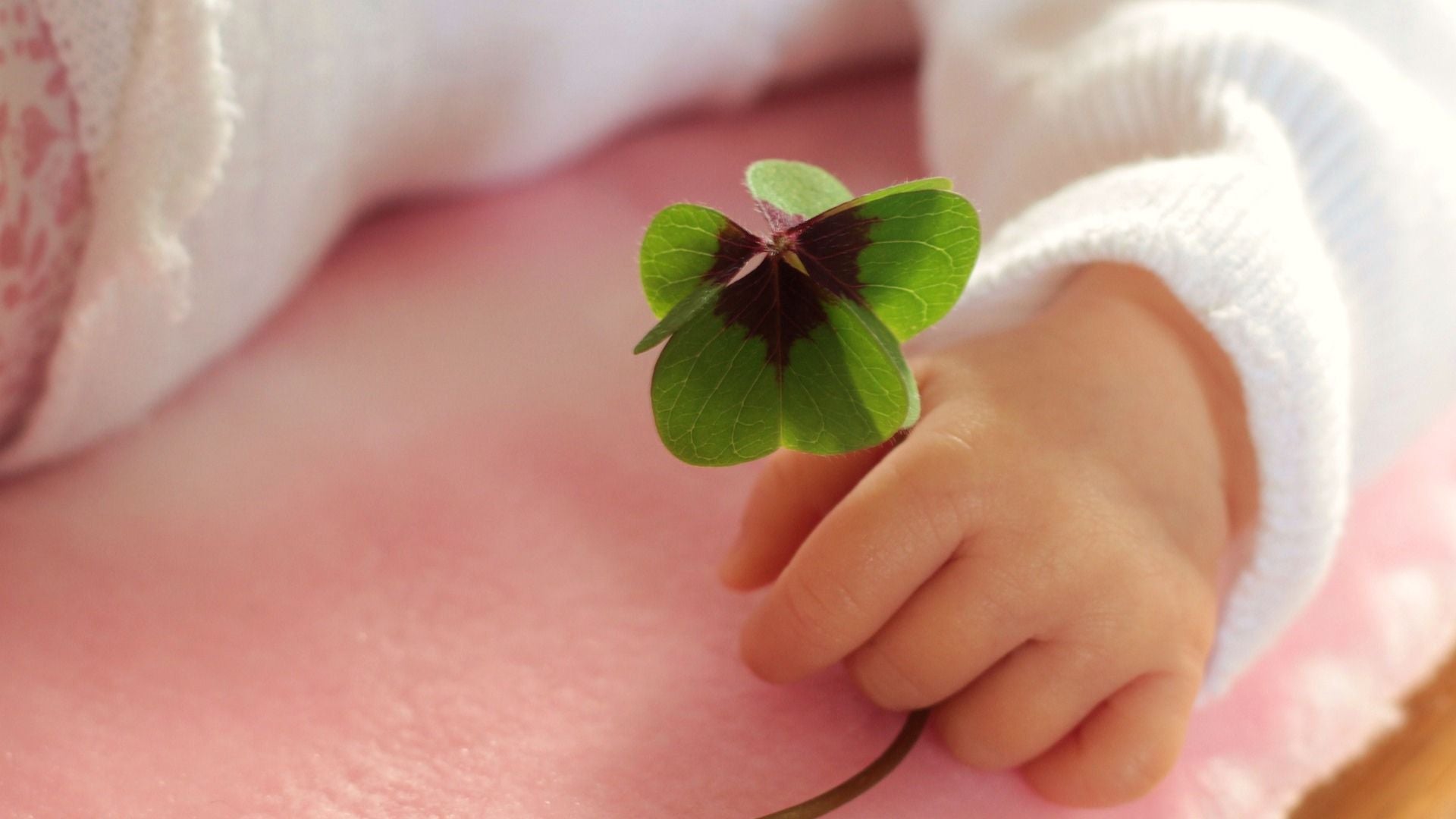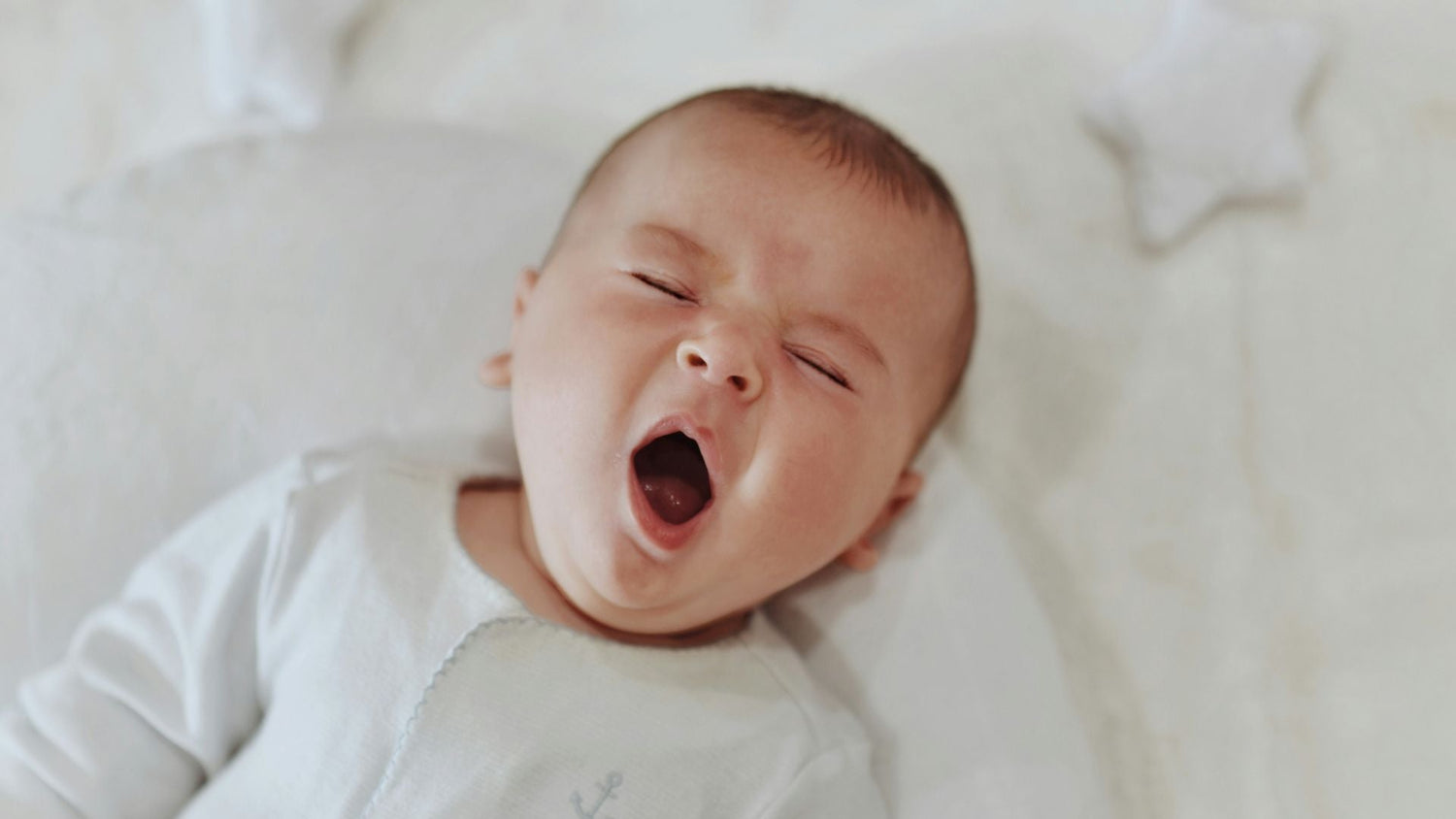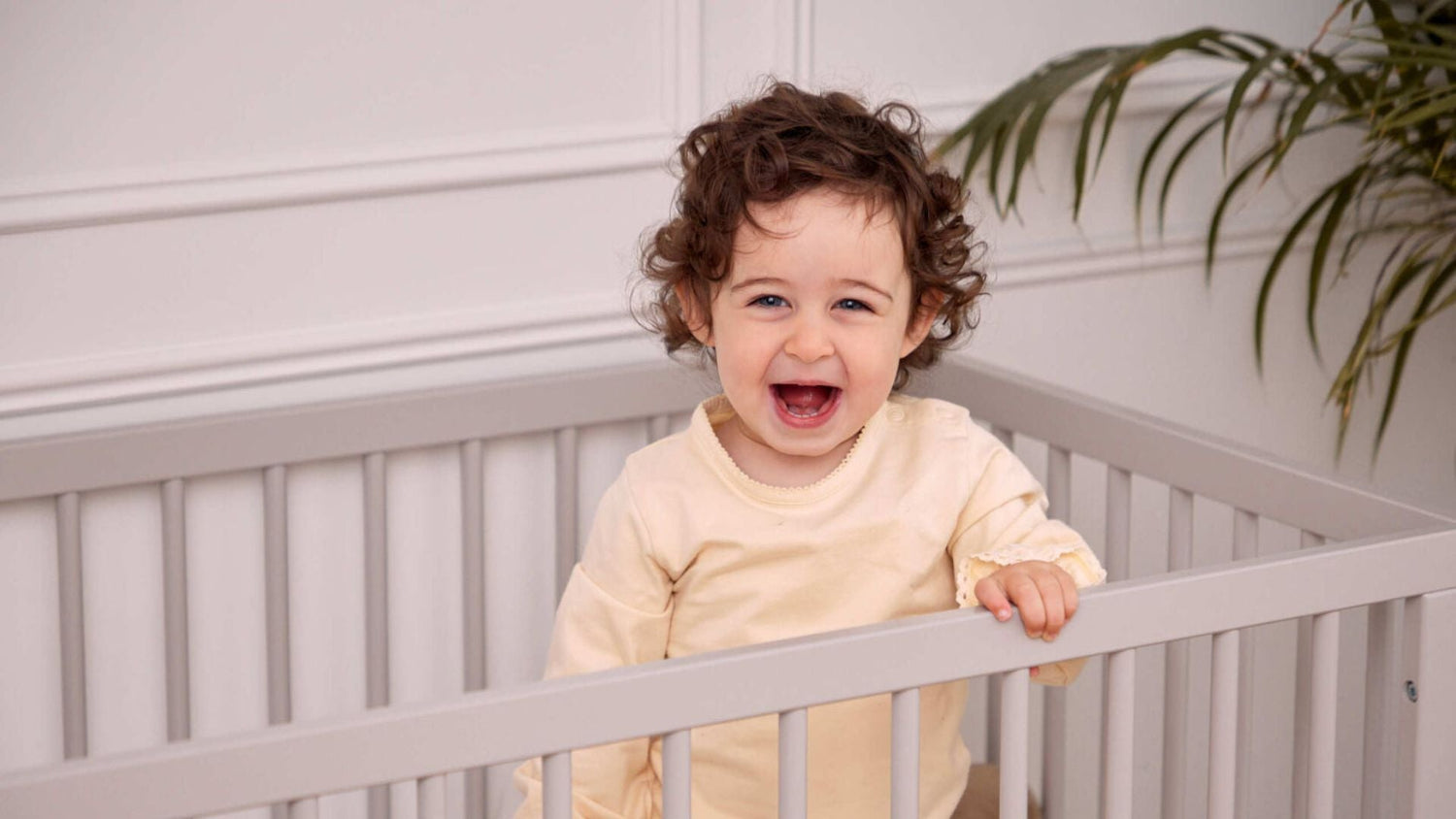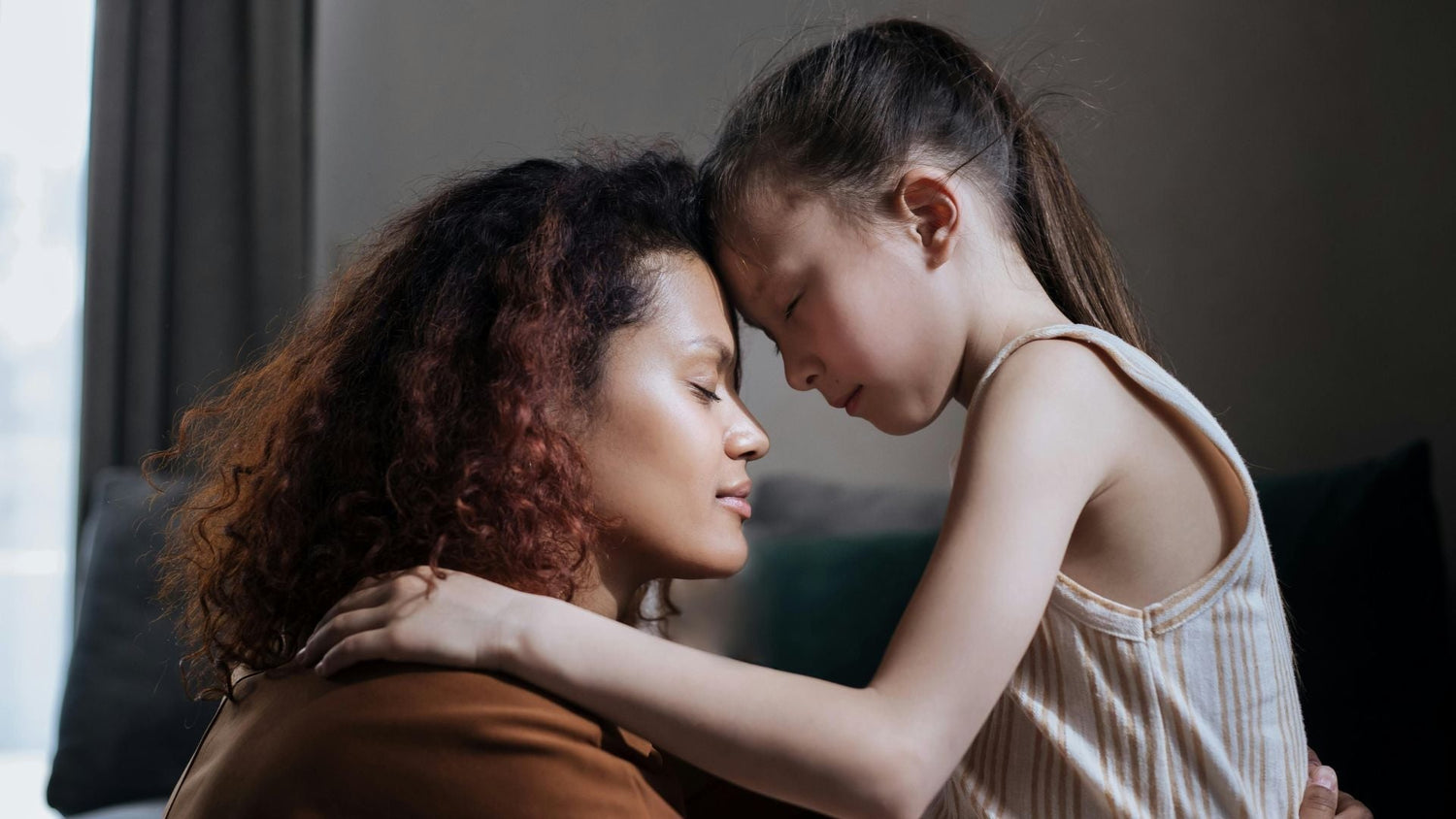Choosing a name of Irish heritage for your newborn will help keep your family connected to the history and culture of the Emerald Isle. In this carefully curated guide, we explore a range of uncommon Irish names for boys and girls that carry the rich heritage and lyrical beauty of the Irish language. A name from this collection is sure to stand out, while also honouring the deep traditions and values that are close to your heart. Embrace the charm and individuality of these rare Irish baby names that offer a fresh twist on the familiar.
To make your search for the perfect Irish name even easier, we've organised our top selections in two distinct ways. You’ll find names listed alphabetically as well as by general meaning, allowing you to explore based on what matters most to you. Whether you’re drawn to the ancient myths, serene landscapes, or spirited culture of Ireland, this guide will help you find a name as unique as your little one. Jump to the section you’re looking for using the links below or scroll down to casually peruse them all.
- Alphabetical - Boy Names
- Alphabetical - Girl Names
- By Meaning - Boy Names
- By Meaning - Girl Names
Unusual Irish Boy Names Listed Alphabetically
Aengus - eng-iss - meaning ‘strength' or 'vigour'
Known as Aengus Óg, meaning "Aengus the Young," he is the god of love, youth, and poetic inspiration. Aengus is the son of the Dagda, the chief of the Tuatha Dé Danann, and Boann, the river goddess.
Ailbhe - AL-vyeh - meaning 'world king'
Ailbhe was one of the legendary Fianna warriors and is often depicted as a brave and noble figure. Additionally, Saint Ailbhe was one of the early Irish saints, said to have been a disciple of Saint Patrick.
Ailill - Aye-lil - meaning 'elf or sprite'
Ailill mac Máta was the king of Connacht and the husband of Queen Medb (Maeve). He plays a central role in the epic tale of the Táin Bó Cúailnge (The Cattle Raid of Cooley).
Aodh or Aodhan - Ay or ay-dawn - meaning 'fire'
Aodh was a popular name for the High Kings of Ireland and regularly crops up in Irish mythology. According to some sources, Aodh was also the name of the God of the Celtic underworld.
Barra - bar-ah - meaning 'white or fair'
The most famous bearer of the name is Saint Finbarr of Cork, the patron saint of the city of Cork. He was a 6th-century bishop and is a significant figure in Irish religious history.
Cael - Kale - meaning 'slender'
Cael is known in Irish mythology as a member of the Fianna, a group of legendary warriors. He is most famous for his tragic love story with Créd, a woman of the Sidhe (fairy folk).
Conall - Cun-il - meaning 'strong wolf'
The most well-known figure with this name is Conall Cernach, a great warrior of the Red Branch knights and the man who avenged Cu Chulainn’s death by killing his murderer Lugaid.
Conlaoch - Kawn-lay or Kon-leth - meaning 'hero' or 'chief'
Conlaoch is a name from Irish mythology, best known as the son of the legendary hero Cú Chulainn. Conlaoch’s tragic death at the hands of his own father, who did not recognize him, is one of the most poignant stories in the Ulster Cycle.
Cuan - Coo-an - meaning 'little wolf' or 'little hound'
Cúán mac Amalgado was an early Irish poet and bishop, and the name is associated with several historical figures in early medieval Ireland.
Darach - dar-ack - meaning 'oak tree'
A name that evokes the sacred oak tree, which was highly revered in Celtic tradition.
Eamon - Ay-mon - meaning 'wealthy protector'
The most notable figure is Éamon de Valera, one of the most prominent political leaders in Irish history. He was a key figure in the struggle for Irish independence and served as both Prime Minister (Taoiseach) and President of Ireland.
Eanna - ay-na - meaning 'birdlike'
Name of a saint who was initially a warrior king in Ulster in the 5th century but who later founded a monastery on the Aran Islands.
Eóghan - oh-an - meaning 'born of the yew tree'
Eóghan Mór was a legendary figure. He is considered an ancestor of several Irish dynasties, including the Eóganachta who were kings of Munster.
Faolán - fay-lawn - meaning 'wolf'
Faolán mac Murchadha was a notable historical figure, a king of Leinster in the early medieval period.
Feidhelm - Fay-lim - meaning 'beauty' and 'ever-good'
In lore, the name was held by three kings of Munster.
Fiach - fee-ock - meaning 'raven'
A name connected to several historical figures, including Fiach mac Aodha, a legendary king. The raven is also a significant symbol in Celtic mythology, often associated with warfare and prophecy.
Fiachra - Fee-kra - meaning 'raven'
Fiachra is another name with strong mythological ties. He was one of the Children of Lir, who were transformed into swans for 900 years by their jealous stepmother.
Fintan - fin-tan - meaning 'little fair one'
Fintan mac Bóchra is a legendary figure in Irish mythology, often considered one of the first inhabitants of Ireland, who survived the flood by transforming into a salmon.
Gael - Gayl - meaning 'Irishman'
The name Gael is derived from the word "Goidel," which refers to the Gaels, the Celtic people who settled in Ireland.
Labhras - Law-ras - meaning 'laurel'
Irish form of the name Laurence.
Lorcan - Lor-can - meaning 'little, fierce'
The most notable are Lorcán mac Fáelán, a semi-legendary king in Irish mythology, and the historical Lorcán Ua Tuathail (St. Laurence O'Toole), who was the Archbishop of Dublin.
Luan - Loo-an - meaning 'warrior', 'strong', and 'warlike'
It has connections to Irish mythology where Luan is sometimes used as a poetic or symbolic name for a warrior.
Lugh - Lou - meaning 'light or brightness'
Lugh is a Celtic god associated with the sun, light, and arts, often known as Lugh Lámhfhada (Lugh of the Long Arm). Lugh is the father of the hero Cú Chulainn and is a central figure in the Mythological Cycle of Irish tales.
Nuada - noo-a-da - meaning 'protector'
Name of an ancient Irish demi-god who was leader of the first mythological ancient race of people to set foot in Ireland. Nuada was killed in a battle for ownership of Ireland by his tribe’s rivals, the Fomorians.
Odhran - Oh-ran - meaning 'little pale green one'
Odhran is the name of several early Irish saints, most notably Saint Odhran, who was a companion of Saint Columba and is often associated with Iona in Scotland.
Rafferty - Raff-er-dee - meaning 'floodtide, abundance, prosperity'
The most notable connection is with the Irish poet Seamus Heaney, who wrote a poem titled "Rafferty's Rant."
Ruadhán - Roo-awn - meaning 'red' or 'red-haired'
Saint Ruadhán of Lorrha was one of the Twelve Apostles of Ireland, a group of early Christian saints who studied under Saint Finian of Clonard.
Seanan - SHaW-nan - meaning 'little wise person'
The name of a 6th century saint from Munster who is said to have slayed a huge sea creature that terrorized the inhabitants of his village. After defeating it, he founded the village of Iniscathy on the island where it had once lived.
Tadhg - tie-gh - meaning ‘poet’ or ‘storyteller’
The most well-known Tadhg from ancient Ireland was the king of Connacht, who ruled in the 11th century (many subsequent kings of Connacht and Munster were also named after him).
Turlough - Tur-la - meaning 'one who aids or assists'
A cousin of Terence and Terry. Turlough was a 17th-century blind harpist and composer.
Unusual Irish Girl Names Listed Alphabetically
Béibhinn - bay-veen - meaning 'white' or 'fair lady'
Several figures with this name appear in Irish lore, including a goddess associated with childbirth and healing. Another Béibhinn was a queen of the underworld.
Bláthnaid - blaw-nad - meaning 'floral'
She was a figure in the Ulster Cycle, where Bláthnaid was the daughter of a king and the wife of the warrior Cú Roí. Her story is one of love, betrayal, and tragedy, as she ultimately played a role in the downfall of her husband.
Briana - Bree-anna - meaning 'comes from the male name Brian'
Briana is considered the feminine form of Brian, a name associated with Brian Boru, the High King of Ireland who defeated the Vikings at the Battle of Clontarf in 1014.
Bronagh - bro-nah - meaning 'sorrowful'
Bronach was a 6th century mystic in county Down who ended up becoming a saint. The bell she used during her life was later venerated.
Caoileann - Kweel-in - meaning 'slender' and 'fair'
Céibhfhionn - Kay-von - meaning 'fair locks'
Goddess associated with inspiration and wisdom, often depicted with beautiful, flowing hair.
Cliodhna - KLEE-uh-na - meaning 'shapely'
Cliodhna was one of ancient Ireland’s most important Goddesses, who came from Tir na Tairngaire (the Land of Promise) to be with her mortal lover, only to be swept away by a wave when she landed. In another story she is credited with giving the famous Blarney Stone its unique gift of eloquence.
Doireann - DOR-en or DEAR-en - meaning 'stormy' or 'tempestuous'
Doireann was the daughter of Bodb Derg, who poisoned Fionn Mac Cumhaill.
Éibhear - Ay-var - meaning 'first of the Gaels to conquer Ireland in Irish mythology'
According to legend, Éibhear was one of the first Gaels to arrive in Ireland, and his descendants are said to have become the ruling families of Munster.
Eibhlín - eve-leen - meaning 'hazelnut'
One famous bearer of this name was Eibhlín Dubh Ní Chonaill, an 18th-century Irish noblewoman and poet, best known for her lament "Caoineadh Airt Uí Laoghaire" (The Lament for Art O'Leary), which is one of the greatest works of Irish literature.
Emer - EE-mer - meaning 'swift'
Wife of legendary Irish hero, Cuchulainn. She was said to possess the six ‘gifts of womanhood’; beauty, a gentle voice, sweet speech, needlework, wisdom and chastity. When Cuchulainn fell in love with another woman, she let him go, but her rival was so touched by Emer’s gesture that she returned to her own husband instead.
Ériu - E-ru - meaning 'comes from the Irish "Éireann"'
Daughter of Ernmas of the Tuatha Dé Danann, Ériu is one of the three goddesses of Ireland, along with Banba and Fódla. Ériu is the matron goddess after whom Ireland (Éire) is named.
Étaín - Ee-teen - meaning 'jealousy'
Étaín is a central figure in one of the most famous love stories in Irish mythology, known as The Wooing of Étaín. She was a beautiful woman loved by both Midir, a member of the Tuatha Dé Danann, and his foster son, Aengus Óg. Her story involves themes of love, jealousy, and transformation and is one of the most well-known tales from the Mythological Cycle.
Fiadh - Fia - meaning 'wild' or 'wild deer'
Grainne - Grawn-yah - meaning 'love'
Associated with the ancient Irish goddess of grain. In mythology, Grainne was betrothed to Fionn MacCumhaill, but fell in love with one of his best warriors (Diarmuid), and the two hatched a plan to run away together.
Grian - Gree-un - meaning 'sun'
Grian, meaning "sun" in Irish, is associated with a sun goddess in Irish mythology. She is sometimes considered a sister of Áine, another sun goddess, and together they are linked to solar worship and the cycles of the seasons.
Íde - ee-da - meaning 'thirst for goodness or knowledge'
Saint Íde, also known as Saint Ita of Killeedy, is one of the most revered female saints in Ireland. She is often referred to as the "foster mother of the saints of Ireland" and is remembered for her piety and dedication to the Christian faith in early mediaeval Ireland.
Iseult - Ee-sult - meaning unknown
Iseult (or Isolde) is a figure from the legend of Tristan and Iseult, a tale of tragic love that has its origins in Celtic mythology but became famous throughout mediaeval Europe.
Líadan - lyah-dun - meaning 'grey lady' or 'grey poet'
Líadan is a name associated with a legendary poet and nun in early Irish history.
Mealla - Malla - meaning 'lightning'
Oonagh - Ou-na - meaning 'a lamb' or may come from the Latin word meaning 'one'
Oonagh, also spelled Úna, is a figure from Irish mythology often described as a fairy queen.
Réaltín - rail-cheen - meaning 'little star'
Riona - Reeona - meaning 'queen'
The name derives from Regina.
Róinseach - Rone-shach - meaning 'seal'
Seoidín - show-deen - meaning 'little jewel'
Síohmha - Shee-va - meaning 'good peace'
From 'Síth-maith'.
Sorcha - sir-eh-ka or sur-aka - meaning 'radiant'
The opposite of ‘dorcha’, the Irish word for ‘darkness’.
Tuiren - Tir-en - meaning 'famed for her beauty'
She was the younger sister of Fionn Mac Cumhail's mother. Tuiren was famed for her beauty.








